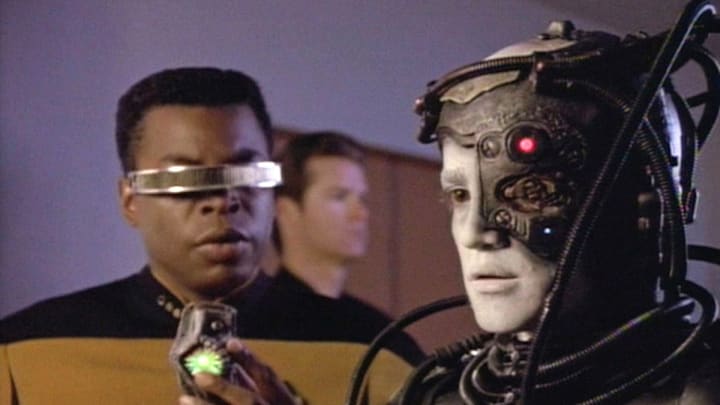Generative AI has been a hot-button topic for a while now. Will it take people's jobs and lead to a mass proliferation of misinformation, or will it make life easier for people and allow human beings to reach new heights of achievement? Writing in a new paper for the journal Nature Machine Intelligence, Dr. Andrea Soltoggio of Loughborough University and colleagues come down on the latter side of the debate, arguing that although risks exist, advancements in AI technology will benefit the world.
In particular, Dr. Soltoggio is excited about collective AI, which involves multiple AI systems talking to each other across fields. This is different from something like ChatGPT, which learn from large sets of training data and stop until they're given more.
“Instant knowledge sharing across a collective network of AI units capable of continuously learning and adapting to new data will enable rapid responses to novel situations, challenges, or threats,” Dr. Soltoggio said, according to Sci News. “For example, in a cybersecurity setting if one AI unit identifies a threat, it can quickly share knowledge and prompt a collective response — much like how the human immune system protects the body from outside invaders. It could also lead to the development of disaster response robots that can quickly adapt to the conditions they are dispatched in, or personalized medical agents that improve health outcomes by merging cutting-edge medical knowledge with patient-specific information. The potential applications are vast and exciting.”
So basically what Dr. Soltoggio is suggesting is machines capable on instantly communicating with each other in a way that allows them to coordinate their efforts. The paper acknowledges that this sounds like ideas we've heard in science fiction, directly citing the Borg from Star Trek as an example. The Borg are a hive mind of cyborgs who often oppose characters like Jean-Luc Picard througout his adventures. Obviously, Dr. Soltoggio thinks collective AI systems will work on behalf of humanity, not in opposition to it.
“We believe that the current dominating large, expensive, non-shareable and non-lifelong AI models will not survive in a future where sustainable, evolving, and sharing collective of AI units are likely to emerge,” Dr. Soltoggio said. “Human knowledge has grown incrementally over millennia thanks to communication and sharing. We believe similar dynamics are likely to occur in future societies of AI units that will implement democratic and collaborating collectives.” Join the hive mind, ChatGPT.

BBC promises to stop using AI to promote Doctor Who
Discussions of generative AI will likely be playing out for years. At the moment, Hollywood studios are looking into how to use AI for their projects, some more eagerly than others. For instance, the BBC used generative AI to help draft two promotional emails and mobile notifications to market the upcoming fourteenth season of Doctor Who. However, according to Deadline, the network promised to stop after receiving complaints. “We followed all BBC editorial compliance processes and the final text was verified and signed-off by a member of the marketing team before it was sent,” the BBC said in a statement. “We have no plans to do this again to promote Doctor Who.”
People everywhere are still pretty leery about AI, so networks like the BBC may have trouble if they want to aggreesively adopt it. For the record, that's what they plan to do, complaints about Doctor Who or no. Almost immediately after the Doctor Who flap, BBC director general Tim Davie addressed industry leaders, saying that, “We will proactively deploy AI on our terms, always holding on to our published principles...Never compromising human creative control, supporting rights holders and sustaining our editorial standards, but proactively launching tools that help us build relevance.”
Even at the time the BBC rolled out its AI Doctor Who promotions, they seemed bullish on the idea, saying that, “generative AI offers a great opportunity to speed up making the extra assets to get more experiments live for more content that we are trying to promote.”
The new season of Doctor Who premieres on May 11. I wouldn't be surprised if that show tackled this topic, either the small-scale version where studio execs use ChatGPT to draft promotional mailers or the version where humanity becomes one flesh with machine.
To stay up to date on everything fantasy, science fiction, and WiC, follow our all-encompassing Facebook page and Twitter account, sign up for our exclusive newsletter and check out our YouTube channel.
